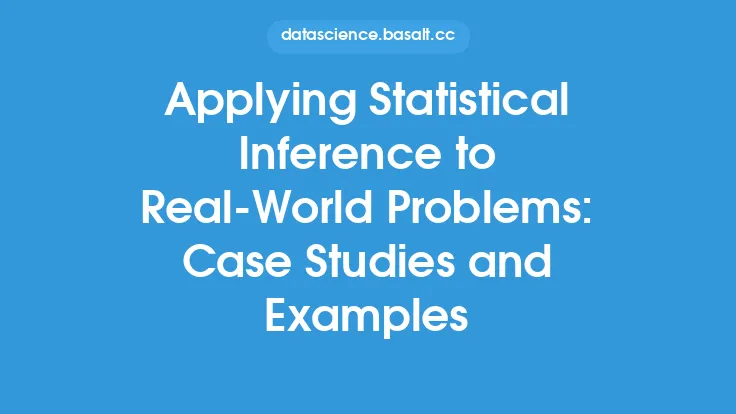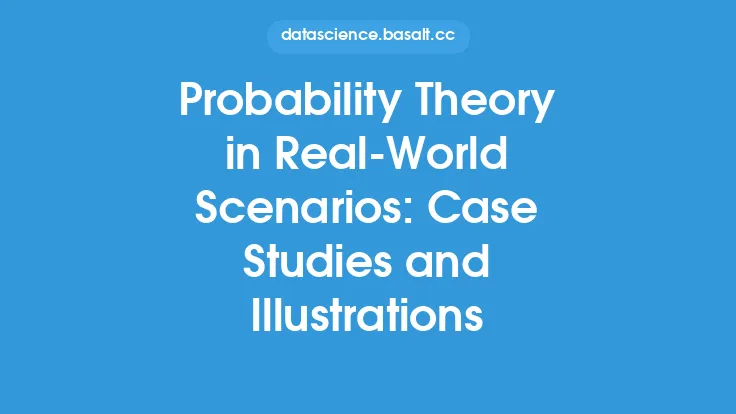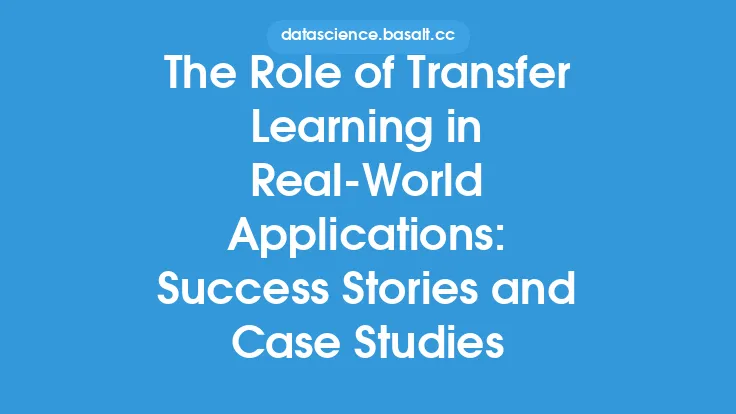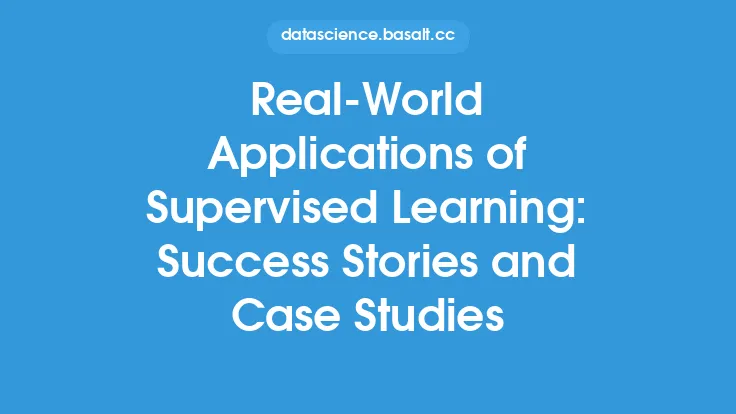Hypothesis testing is a crucial concept in statistics that allows researchers and analysts to make informed decisions based on data. It involves formulating a hypothesis, collecting data, and then testing the hypothesis using statistical methods to determine whether it is true or false. In real-world scenarios, hypothesis testing is used in a wide range of fields, including business, medicine, social sciences, and engineering. This article will explore several case studies and examples of hypothesis testing in real-world scenarios, highlighting the importance and application of this statistical concept.
Introduction to Hypothesis Testing in Real-World Scenarios
In real-world scenarios, hypothesis testing is used to answer questions, solve problems, and make informed decisions. For instance, a company may want to know whether a new marketing campaign is effective in increasing sales, or a medical researcher may want to determine whether a new drug is effective in treating a particular disease. Hypothesis testing provides a systematic approach to answering these questions by formulating a hypothesis, collecting data, and then testing the hypothesis using statistical methods.
Case Study 1: Testing the Effectiveness of a New Marketing Campaign
A company has launched a new marketing campaign to promote its products, and it wants to know whether the campaign is effective in increasing sales. The company formulates a null hypothesis that the campaign has no effect on sales and an alternative hypothesis that the campaign increases sales. The company collects data on sales before and after the campaign and uses a statistical test, such as a t-test, to determine whether the difference in sales is statistically significant. If the results show that the difference in sales is statistically significant, the company can reject the null hypothesis and conclude that the campaign is effective.
Case Study 2: Testing the Effectiveness of a New Drug
A medical researcher wants to determine whether a new drug is effective in treating a particular disease. The researcher formulates a null hypothesis that the drug has no effect on the disease and an alternative hypothesis that the drug is effective in treating the disease. The researcher collects data on the outcomes of patients who receive the drug and those who receive a placebo and uses a statistical test, such as a chi-squared test, to determine whether the difference in outcomes is statistically significant. If the results show that the difference in outcomes is statistically significant, the researcher can reject the null hypothesis and conclude that the drug is effective.
Case Study 3: Testing the Relationship Between Two Variables
A social scientist wants to determine whether there is a relationship between the amount of time spent watching TV and the level of obesity in children. The scientist formulates a null hypothesis that there is no relationship between the two variables and an alternative hypothesis that there is a positive relationship between the two variables. The scientist collects data on the amount of time spent watching TV and the level of obesity in a sample of children and uses a statistical test, such as a correlation coefficient, to determine whether the relationship between the two variables is statistically significant. If the results show that the relationship is statistically significant, the scientist can reject the null hypothesis and conclude that there is a positive relationship between the two variables.
Case Study 4: Testing the Difference Between Two Groups
An engineer wants to determine whether there is a difference in the quality of two different materials used in manufacturing. The engineer formulates a null hypothesis that there is no difference in the quality of the two materials and an alternative hypothesis that there is a difference in the quality of the two materials. The engineer collects data on the quality of the two materials and uses a statistical test, such as an ANOVA test, to determine whether the difference in quality is statistically significant. If the results show that the difference in quality is statistically significant, the engineer can reject the null hypothesis and conclude that there is a difference in the quality of the two materials.
Common Applications of Hypothesis Testing
Hypothesis testing has a wide range of applications in real-world scenarios, including:
- Business: Hypothesis testing is used in business to test the effectiveness of marketing campaigns, determine the relationship between variables, and test the difference between groups.
- Medicine: Hypothesis testing is used in medicine to test the effectiveness of new drugs, determine the relationship between variables, and test the difference between groups.
- Social Sciences: Hypothesis testing is used in social sciences to test the relationship between variables, determine the difference between groups, and test the effectiveness of interventions.
- Engineering: Hypothesis testing is used in engineering to test the quality of materials, determine the relationship between variables, and test the difference between groups.
Best Practices for Hypothesis Testing in Real-World Scenarios
When conducting hypothesis testing in real-world scenarios, it is essential to follow best practices to ensure that the results are accurate and reliable. Some best practices include:
- Formulating a clear hypothesis: It is essential to formulate a clear and specific hypothesis that can be tested using statistical methods.
- Collecting high-quality data: It is essential to collect high-quality data that is relevant to the hypothesis and is free from errors and biases.
- Choosing the right statistical test: It is essential to choose the right statistical test for the hypothesis and the data.
- Interpreting the results correctly: It is essential to interpret the results correctly and avoid making incorrect conclusions.
Conclusion
Hypothesis testing is a powerful statistical concept that has a wide range of applications in real-world scenarios. By formulating a hypothesis, collecting data, and testing the hypothesis using statistical methods, researchers and analysts can make informed decisions and answer questions. The case studies and examples presented in this article demonstrate the importance and application of hypothesis testing in real-world scenarios. By following best practices and using hypothesis testing correctly, researchers and analysts can ensure that their results are accurate and reliable.





